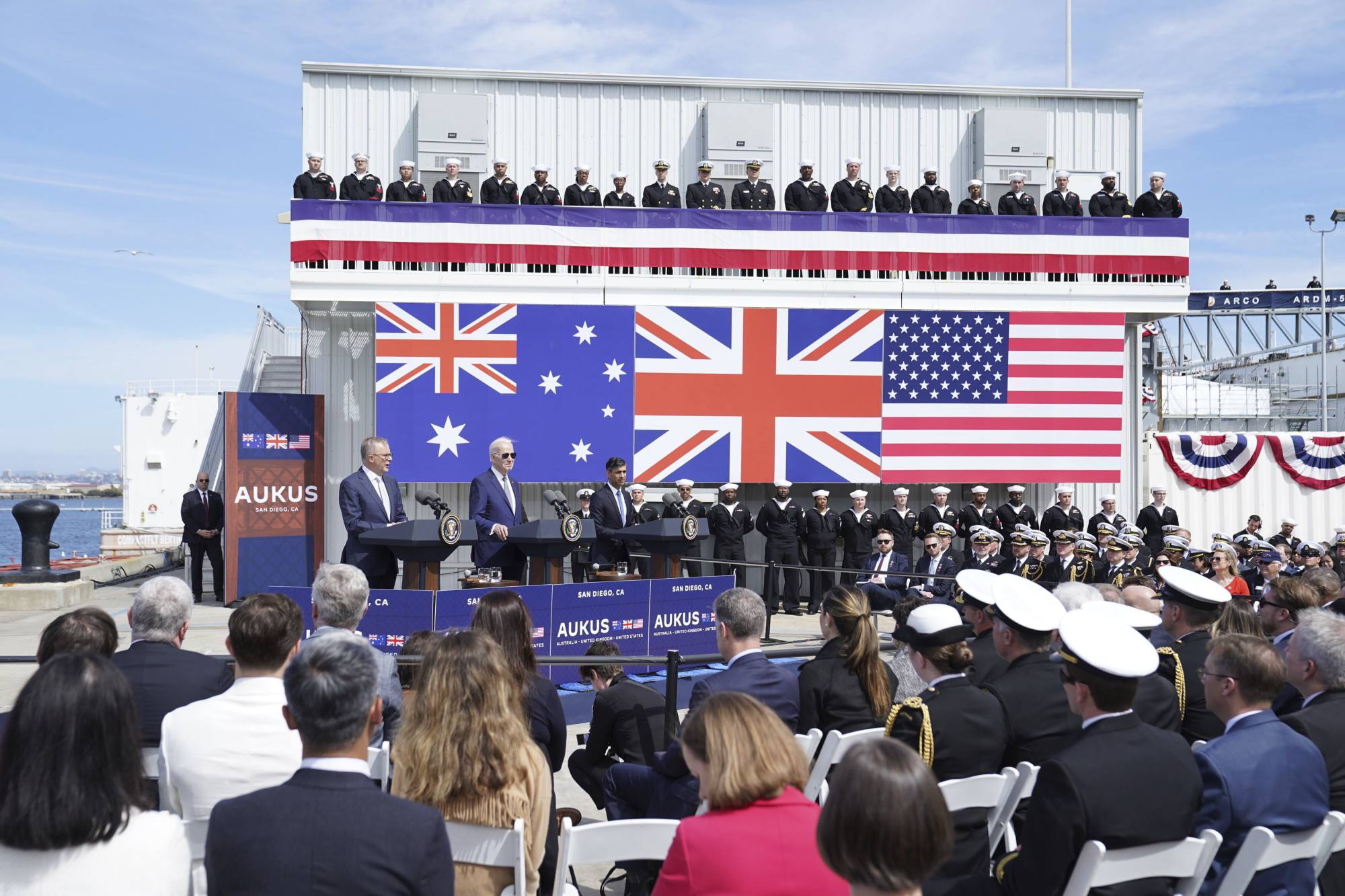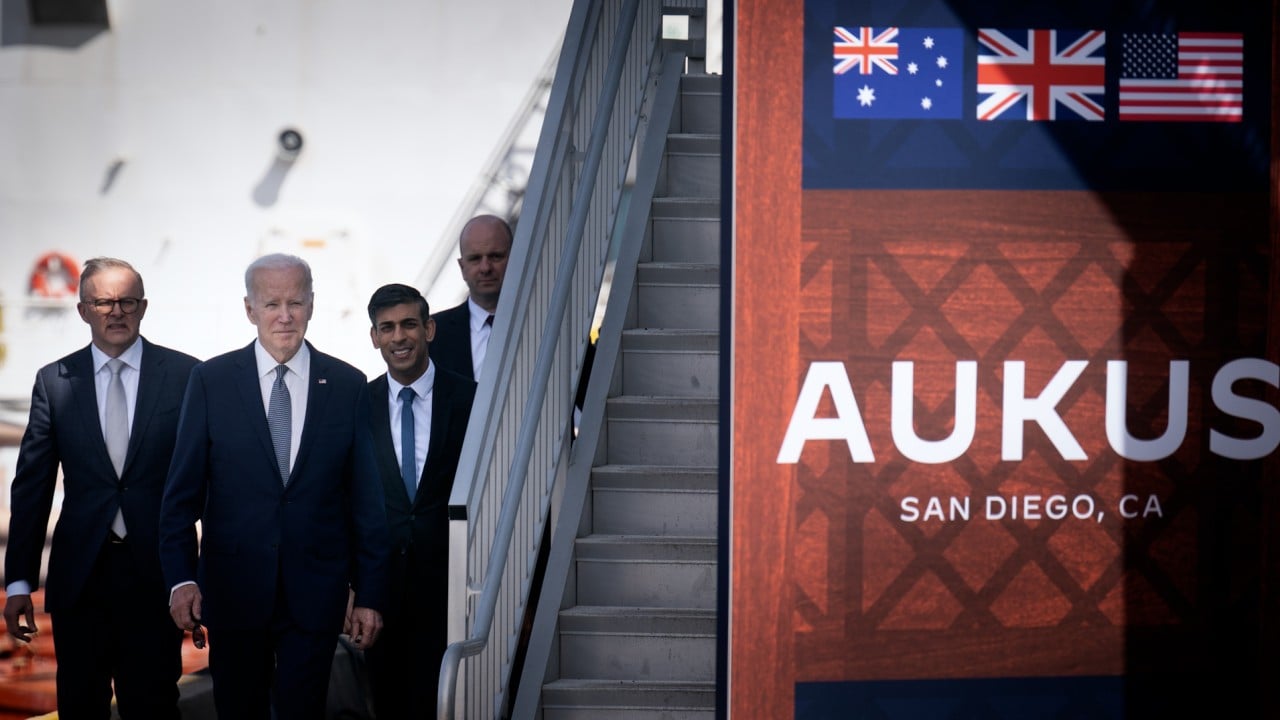The second pillar is focused on the joint development of advanced technologies, including artificial intelligence and quantum computing, as well as boosting intelligence sharing.
“[Trump’s] America First perspective would clash with New Zealand’s core commitment to an international rules-based order,” he added.
New Zealand has long been active on disarmament and non-proliferation issues, often playing a leadership role in the region and globally, and is a signatory to the Treaty on the Prohibition of Nuclear Weapons.
But under Aukus, fissile material, the key component in nuclear weapons, is allowed to be transferred to a non-nuclear state without the need for it to be inspected by the United Nations’ International Atomic Energy Agency.
Even if New Zealand ignored the first pillar and focused on the second, there will remain much public debate over how this would affect the “distinctly independent nature” of the country’s foreign policy, said Marc Lanteigne, an associate professor of political science and international relations at the University of Tromso in Norway.
Wellington’s policy of selecting the second pillar was an “à la carte” policy towards Aukus, Lanteigne said, and that pointed to the potential for advanced technology and intelligence sharing with Australia.
“(However), there remains the question if Aukus is the only, and even the most ideal, way for New Zealand to accomplish that goal,” he said.
Australia’s Aukus nuclear submarines could fuel arms race despite assurance
Australia’s Aukus nuclear submarines could fuel arms race despite assurance
Tilt towards the US?
New Zealand Foreign Minister Winston Peters on December 11 announced a renewed commitment to strengthen ties with intelligence partners, including the US, Britain, Canada and Australia.
The five countries belong to the US-led Five Eyes alliance that have shared intelligence since World War II.
University of Otago’s Patman said there was “some tension” between the views of Luxon and Peters on the country’s policy towards China.
While Luxon has stressed the need for a positive relationship with New Zealand’s number one trade partner, Peters had taken a “more robust approach” towards China.
“A tilt towards Washington has become severely complicated by the way the Biden administration has mishandled the Gaza crisis and contributed to the humanitarian catastrophe there,” Patman said.
New Zealand set to maintain China ties but Aukus issue could complicate
New Zealand set to maintain China ties but Aukus issue could complicate
Luxon, who was elected in October and sworn in as New Zealand’s prime minister last month, said during the election he would not alter Wellington’s relations with its biggest trading partner. Bilateral trade volume between the two countries stood at US$24.7 billion in 2021, four times that of 2008 when they signed a free trade deal.
Lanteigne said Luxon’s balancing act would become “much more complicated” if Wellington becomes a “partial member of Aukus, given Beijing’s strong opposition to the pact as a de facto ‘Pacific Nato’”.
Geoffrey Miller, a geopolitical analyst at the Victoria University of Wellington’s Democracy Project focusing on New Zealand’s foreign policy, said the country is moving rapidly to align itself more closely with Australia’s more hawkish and security-driven view of the Indo-Pacific.
“It is a big change from the previous Labour government led by Jacinda Ardern and Chris Hipkins, which often seemed to play for time on the big issues,” he said, adding that the new coalition government is likely to move swiftly on Aukus.
“It means business across a range of areas with a 100-day plan that is focused on taking action, a strategy that is aimed at directly contrasting with perceptions that Labour was more talk than substance,” Miller said.

If Wellington joins Aukus pillar two, the country’s “nearly 40-year ‘independent foreign policy’ will be on life support”, Miller said, referring to the “bloc-free” policy followed by the country since the Anzus alliance – comprising Australia, New Zealand and the US – broke up in 1984.
That year, New Zealand declared itself a nuclear-free zone and refused to allow US nuclear-powered submarines to visit its ports.
Two years later, the US and Australia confirmed they would continue to honour their obligations to each other under the treaty established in 1951, while treaty obligations of the US towards New Zealand were suspended.
“New Zealand would have to expect repercussions and fallout from its biggest trading partner and the unstated target of Aukus, China,” Miller said.
Canberra, Washington and London will also be questioning New Zealand’s capabilities to “determine just what the price of admission will be for Wellington to join the West’s elite new club”, he said.


